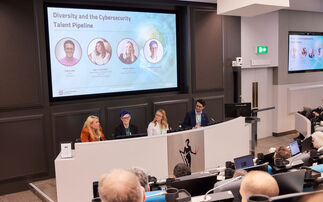Organised cyber crime is the biggest threat, say IT leaders
Almost one-third of CIOs have had to respond to a major IT security emergency or cyber attack on behalf of their organisation in the past two years, according to a survey by recruiter Harvey Nash a...
To continue reading this article...
Join Computing
- Unlimited access to real-time news, analysis and opinion from the technology industry
- Receive important and breaking news in our daily newsletter
- Be the first to hear about our events and awards programmes
- Join live member only interviews with IT leaders at the ‘IT Lounge’; your chance to ask your burning tech questions and have them answered
- Access to the Computing Delta hub providing market intelligence and research
- Receive our members-only newsletter with exclusive opinion pieces from senior IT Leaders























